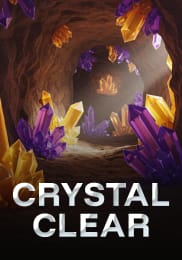European Portuguese Slang
European Portuguese Lesson
Video transcript
Hey there and welcome to Ablas! In this video, we’re going to cover European Portuguese slang. We’ll also explore how to best use each phrase, and put them into practice with an everyday conversation. Be sure to download the PDF of today’s lesson from the link in the description!
Conversation fillers
Let’s start by going over common conversation fillers that’ll make you sound more natural.
“Eu, tipo, não consegui acabar o trabalho a tempo.“ (I, like, couldn't finish the work on time.) This is a common filler word used by a lot of people, but most likely teenagers. Tipo can also mean a guy, or a girl in the female form, tipa.
“Pá… isto está mesmo difícil.“ (Well… this is really difficult.) Pá is a very common filler to show that you’re thinking. It can also be used on the end of the sentence to emphasise what’s being said.
“Não acredito que fizeste isso, meu!“ (I can't believe you did that, man!) Meu also means “mine” in Portuguese, and since it’s masculine, it’s used in this context when speaking to a male.
“Ya, eu também vou à festa.“ (Yeah, I'm also going to the party.) Ya can easily be replaced with the Portuguese word for ”yes”: sim.
Descriptive terms
Now we’ve covered some conversation fillers, let’s move onto descriptive slang terms.
“O novo restaurante é mesmo fixe.“ (The new restaurant is really cool.) Fixe is a very common word that can mean cool, nice or good.
“Este vinho é baril/brutal, tens de provar.“ (This wine is awesome, you have to try it.) Baril and brutal are both good ways to describe something as awesome or cool.
“O bairro tornou-se um bocado foleiro/chunga.“ (The neighbourhood has gotten a bit lame.) We can use foleiro and chunga to describe something that’s of low quality or tacky.
“A malta vai toda à praia amanhã.“ (The guys are all going to the beach tomorrow.) A malta can refer to any group of people or friends, but it can also mean a gang.
“Depois da discoteca, bateu-me uma larica.“ (After the club, I got really hungry.) Uma larica is used to refer to someone who’s starving, especially after taking substances at a party.
“Podes aumentar uma beca o volume?“ (Can you turn up the volume a bit?) Uma beca is an easy way of saying “a bit.”
“Gosto bué deste livro.“ (I like this book a lot.) Conversely to uma beca, we can say bué, which means “a lot.”
“Quem é aquele gajo/fulano ali?“ (Who is that guy over there?) We can use gajo or fulano to refer to any guy or man. Note that fulano is often used to refer to someone you don’t know well.
“A bacana/fulana da receção foi super simpática.“ (The girl at the reception was super nice.) We can use bacana or fulana to refer to any girl or woman. Similar to before, fulana is often used to refer to someone you don’t know well.
Colloquial verbs
Let’s finish off the slang terms with some colloquial verbs.
“Bora lá, já estamos atrasados!“ (Let's go, we're already late!) Vamos embora, or bora for short, is a common way to say “let’s go.”
“Eu ’tou me a sentir bem.“ (I’m feeling good.) This is essentially a shorter form of the verb estar, which means “to be.”
“Curti bastante o filme.“ (I really enjoyed the movie.) The verb curtir means to enjoy or like something, but it can also mean to tan in the sun.
“Estou lixado se não acabar este trabalho hoje.“ (I'm screwed if I don't finish this work today.) Lixado is used to describe being in a difficult or complicated situation.
“Já são dez horas, tenho de bazar.“ (It's already ten o'clock, I have to leave.) Last of all, bazar means to leave or go away.
Conversation
Now we’ll put all those slang expressions into practice with an everyday conversation.
It was a perfect summer Saturday at Praia da Rocha. Miguel, Tiago, and Sofia had arranged to meet to spend the day together.
Era um sábado de verão perfeito na Praia da Rocha. O Miguel, o Tiago e a Sofia combinaram encontrar-se para passar o dia juntos.
Hey, guys! Sorry I'm late, the traffic was a nightmare.
Boas, malta! Desculpem o atraso, o trânsito estava bué complicado.
Miguel
We were already thinking you'd forgotten! You're always late, dude.
Já estávamos a pensar que te tinhas esquecido! 'Tás sempre atrasado, pá.
Tiago
Leave Miguel alone, Tiago. Like, we just arrived too.
Deixa lá o Miguel, Tiago. Tipo, também acabámos de chegar.
Sofia
I brought some beers and snacks for later. This spot is really cool!
Trouxe umas cervejas e uns lanches para mais tarde. Este lugar é mesmo fixe!
Miguel
Awesome, man! I was needing a beer. This heat is killing me.
Brutal, meu! Eu 'tava a precisar de uma cerveja. Este calor está-me a matar.
Tiago
Shall we go for a swim first? The water looks great.
Bora dar um mergulho primeiro? A água parece estar ótima.
Sofia
Sofia, have you seen those people playing volleyball? Looks like they're having a great time.
Sofia, já viste aquela malta a jogar voleibol? Parece que estão a curtir bué.
Miguel
Yeah, they seem cool. Like, we could ask if we can play too, right?
Ya, parecem fixes. Tipo, podíamos perguntar se podemos jogar também, não?
Sofia
That girl in the red bikini can't take her eyes off you, Miguel.
Aquela bacana de biquíni vermelho não tira os olhos de ti, Miguel.
Tiago
Ah, yeah! But I'm more interested in taking a dip. Are you guys coming or am I going alone?
Ah, ya! Mas estou mais interessado em dar um mergulho. Vêm ou vou sozinho?
Miguel
Let's go, I'm dying from the heat.
Bora lá, ‘tou lixado de calor.
Tiago
The three friends ran to the sea. After a good swim, they returned to their towels, feeling refreshed.
Os três amigos correram para o mar. Depois de um bom mergulho, voltaram para as toalhas, sentindo-se refrescados.
I'm hungry, did you bring anything to eat?
Estou com fome, trouxeram alguma coisa para comer?
Sofia
Of course! I have some sandwiches and crisps here.
Claro! Tenho aqui umas sandes e batatas fritas.
Miguel
Guys, don't forget we have that party tonight. It's going to be awesome!
Pessoal, não se esqueçam que temos aquela festa logo à noite. Vai ser brutal!
Tiago
Of course I didn't forget! I have the perfect outfit.
Claro que não me esqueci! Tenho a roupa perfeita.
Sofia
I'm thinking of leaving here around six, I need to go home to shower and change clothes.
Eu 'tou a pensar em bazar daqui por volta das seis, preciso de ir a casa tomar banho e mudar de roupa.
Tiago
We can all go together. My car is over there.
Podemos ir todos juntos. O meu carro está ali.
Miguel
And so, the three friends continued to enjoy their day at the beach, talking, laughing, and planning the night ahead.
E assim, os três amigos continuaram a desfrutar do seu dia na praia, conversando, rindo e planeando a noite que tinham pela frente.
It’s quiz time!
Did you spot any of those slang expressions in that conversation? Feel free to leave us a comment with any questions. But we’re not done yet – it’s quiz time!
What's the meaning of "bué" in the phrase "Estou bué cansado"?
A lot
Almost
A little bit
The correct answer is… a lot.
If a friend says "Aquela festa foi mesmo foleira," how did they find the party?
Lame or tacky
Very fun and exciting
Too expensive
The correct answer is… lame or tacky.
If someone tells you "Vamos bazar daqui," what are they suggesting?
Let's leave this place
Let's dance here
Let's eat something
The correct answer is… Let's leave this place.
Your task
Well done for getting this far!
Now your task is to extend the conversation earlier with the three friends at the beach. Try to capture some of the slang expressions we covered in their conversation.
Be sure to leave a like if you enjoyed this video and hit the subscribe button so you don’t miss out on future videos. Our website is full of fun games across 7 languages, so head on over and put your skills to the test! Until next time, thanks for watching!
Thoughts on this video?







